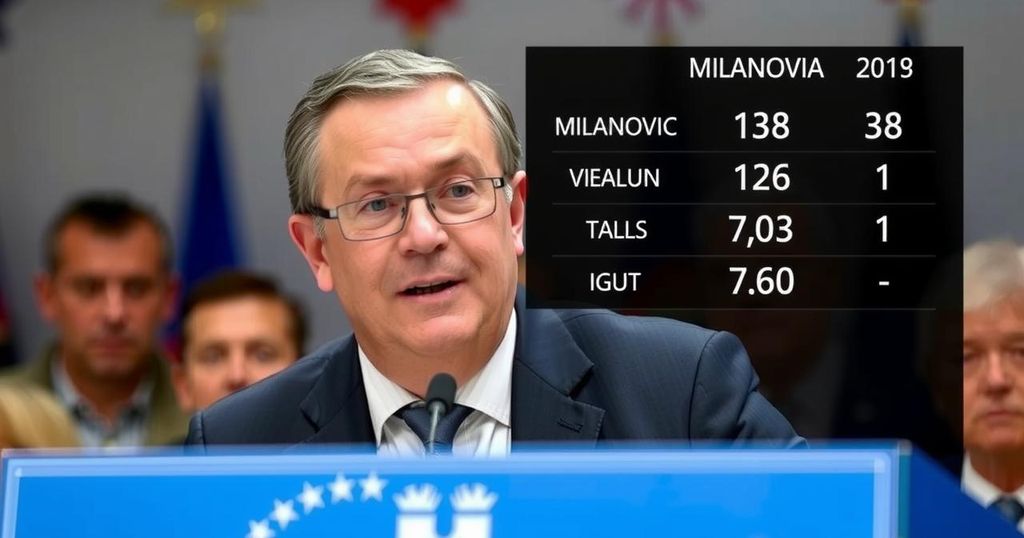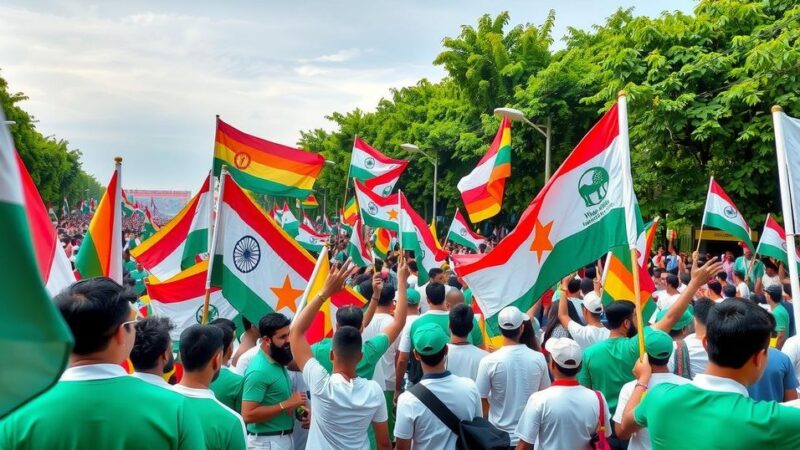Zoran Milanovic is on track to win re-election as Croatia’s president, according to preliminary results showing him with 50.1% of the vote, significantly ahead of Dragan Primorac. If no candidate attains a majority, a runoff election will occur on January 12, 2024. Milanovic’s administration faces challenges including high inflation and labor shortages, while he continues to navigate complex international stances, especially regarding Ukraine.
Zoran Milanovic, the incumbent candidate from the opposition Social Democratic Party, is poised to secure a second term as Croatia’s president based on early voting results. As reported by the State Electoral Commission, preliminary data indicates that Milanovic garnered 50.1 percent of the vote, significantly ahead of his primary competitor, Dragan Primorac from the ruling Croatian Democratic Union (HDZ), who received 22.3 percent. If no candidate achieves a majority, a runoff election is scheduled for January 12, 2024.
Approximately 3.8 million Croatian citizens were eligible to participate in the election, which included eight candidates. Although the role of president in Croatia is largely ceremonial, the position allows for influence over foreign policy and national security decisions. Throughout his first term, Milanovic has frequently clashed with Prime Minister Andrej Plenkovic on various issues, particularly regarding the European Union and NATO’s positions on the conflict in Ukraine. Milanovic’s rhetoric, while populist in nature, positions him as a significant counterforce to the HDZ-led government, which has faced multiple corruption scandals.
Milanovic’s previous victory in 2020 was underpinned by promises to advocate for tolerance and liberal values. He has condemned Russia’s military aggression toward Ukraine but has simultaneously criticized the extent of Western military aid to Ukraine, leading to accusations from Plenkovic that he has taken a pro-Russian stance. In defense of his position, Milanovic stated, “As long as I am president, no Croatian soldier will fight in somebody else’s wars.” His administration will continue to navigate challenges such as high inflation and a labor shortage in Croatia.
As we await final results, Zoran Milanovic appears well on his way to maintaining his presidency, demonstrating not only public appeal but also a consistent narrative that resonates with a population navigating complex socio-economic issues.
Croatia’s presidential elections take place within a context of political turbulence, with incumbent Zoran Milanovic having successfully risen to prominence as a figure of opposition against the ruling HDZ party. The presidency is primarily ceremonial, yet it retains pivotal influence over matters of foreign policy and state security. High inflation rates and labor shortages are pressing concerns for the electorate, which may impact voting behavior and public sentiment. Milanovic’s presidency has been marked by controversial stances on both domestic and international issues, particularly his approach towards NATO and the EU’s policies regarding the conflict in Ukraine.
In summary, Zoran Milanovic’s apparent lead in the early results of Croatia’s presidential election indicates the electorate’s preference for continuity in leadership amid challenges facing the nation. While his presidency is characterized by clashes with the current government and a critical stance on international military engagements, Milanovic’s appeal remains strong among the populace. The dynamics of this election reflect broader issues of governance, corruption, and public demand for effective leadership.
Original Source: www.aljazeera.com






